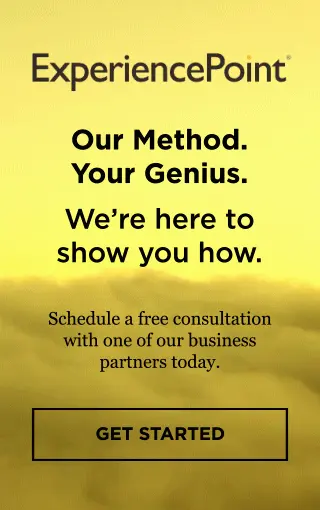As ExperiencePoint’s new Vice President of Product, Ramzi Rahbani brings a wealth of skill and energy to the team. His impressive portfolio reveals a background in engineering and showcases his rise from Senior Manager of Digital Strategy at Scotiabank to Customer Platforms Director at President’s Choice Financial. As a humble immigrant from Lebanon and proud father, Ramzi has joined ExperiencePoint at a pivotal time. Here are his thoughts so far...
Congratulations on your first month as part of the ExperiencePoint team! What has stood out to you about the company so far?
The immediate acceptance into the EP family stood out to me. I was welcomed with open arms and eagerly invited to start collaborating. The energy was infectious. The second thing that stood out is how deeply everyone at ExperiencePoint is client-focused. Everybody is ready to go above and beyond for our clients, whether customizing innovation journeys or conducting post-workshop support.
How do you think ExperiencePoint differs from competing innovation capability-building companies?
When I think about our competition, I see various groups. For starters, consultancy firms. Companies hire them to help solve a problem, but organizations frequently don’t know how to identify their problem. Consulting agencies also do the work for you. They come in, they do their job, and it's not tangible.
Then there is online learning, which has accelerated dramatically since the pandemic. Users have many courses on demand; these forms of education are good options because they offer foundational knowledge. However, they don't focus on helping you drive change in an organization. You leave wondering what to do next.
ExperiencePoint stands out amongst those competing models because we exist in that middle ground. We have different entries into our journey depending on a company’s stage with innovation, and we focus on sustaining change through post-workshop support. Our participants leave with a burning fire to drive organizational change.
What do you think are the biggest challenges the Learning & Development industry will face in the next few years?
Over the last year and a half, most companies have not been innovating. They've gone into cruise control, slowed down and right now, they're struggling to keep creative juices flowing. For that reason, I foresee an increase in demand for innovation.
However, we have to keep in mind that organizational needs are going to be shifting. The real question will be, what is the next capability that organizations will want to scale? In my opinion, that next capability is agility at the enterprise level.

Who is a leader you have always admired?
My parents have been a constant source of inspiration for me. My mom taught me flexibility and adaptability from a young age. As a mother of four, she switched careers to be closer to her children. She wanted to take vacation at the same time as her children and do school drop-offs and pick-ups. As a result, she went from having a hospital management job to becoming a teacher and then school principal. To me, that's a pure example of identifying a need and then being able to adapt.
My father went from having a job in hospital management to being the CEO of his company in 35 years. Again, to me, that's a pure example of determination; learning everything from the ground up and then being able to lead. Their resiliency and determination continually inspire me to this day.
Describe the type of environment in which your leadership style is most effective.
My leadership style puts empathy at the forefront of everything I do, and for that reason, I’m an involved leader. For me, leading is not about micro-management; it’s about being on the ground with my team and having a pulse on the market. In terms of environment, I thrive through collaboration and experimentation. I'd rather fail trying than fail to try. That is very important for me.
If you could go back in time ten years, what would you tell yourself about leadership that you didn’t know then?
Back in 2010, I had just started working at Rolls-Royce. I was promoted to a leader within a year and was one of the youngest leaders there. I didn't know anything about leadership. I just knew that I liked to deliver and wanted to lead by example. I acted on ideas and shared them with the team.
With time, I started learning that leadership is not about titles. It revolves around being able to inspire, connect dots and help others elevate their work. If I could give myself some advice, it would be that you won’t be able to please everybody. A good leader isn’t always a liked leader. You have to do what is best for the team. Ultimately, leadership can be very challenging but worth the reward.
Are you interested in joining the ExperiencePoint team? Browse our open positions:
